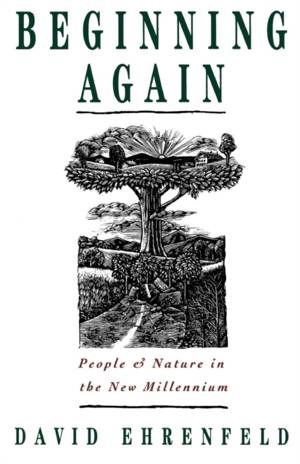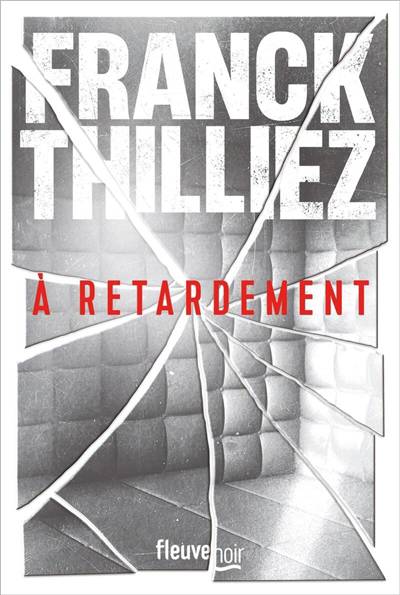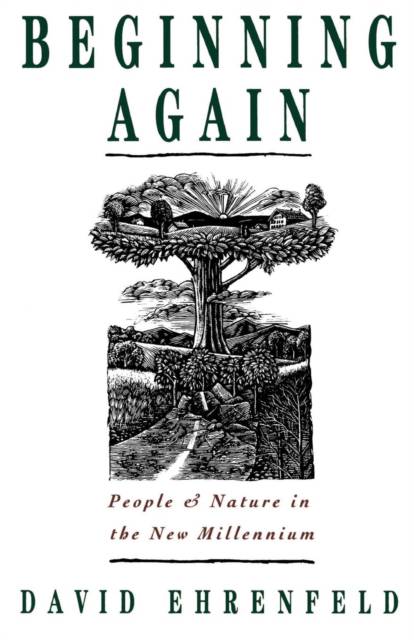
- Retrait gratuit dans votre magasin Club
- 7.000.000 titres dans notre catalogue
- Payer en toute sécurité
- Toujours un magasin près de chez vous
- Retrait gratuit dans votre magasin Club
- 7.000.0000 titres dans notre catalogue
- Payer en toute sécurité
- Toujours un magasin près de chez vous
62,95 €
+ 125 points
Description
Early in this volume, David Ehrenfeld describes what prophecy really is. Referring to the biblical prophets, he says they were not the "holy fortunetellers that the word prophet has come to signify....The business of prophecy is not simply foretelling the future; rather it is describing the present with exceptional truthfulness and accuracy." Once this is done, then it can be seen that broad aspects of the future have suddenly become apparent.
The twentieth century is drawing to a chaotic close amidst portents of unprecedented change and upheaval. The unravelling of societies and civilizations and the destruction of nature march together--linked--a fact whose enormous significance is often lost. In Beginning Again, David Ehrenfeld has undertaken the difficult task of describing the present clearly enough to reveal the future. Out of his broad vision emerges a glimpse of a new millennium: a vision at once frightening and comforting, a scene of great devastation and great rebuilding.
Ehrenfeld ranges far and wide to present a coherent vision of our relationship with Nature--its many aspects and implications--as our century opens into the next millennium. Whether he is writing about the problem of loyalty to organizations, rights versus obligations, our over-managed society, the vanishing of established knowledge, the failure of experts, the triumph of dandelions, Dr. Seuss, Edward Teller, or the future of farming, he is always concerned with the intricate interaction between technology and nature. As in his classic book, The Arrogance of Humanism, Ehrenfeld never loses sight of our fatal love affair with the fantasy of control. We now have no choice, he argues, but to transform the dream of control, of progress, from one of overweening hubris, love of consumption, and the idiot's goal of perpetual growth, to one based on "the inventive imitation of nature," with its honesty, beauty, resilience, and durability.
Few American writers and even fewer scientists can describe these timeless, transcendent qualities of nature so well. In "Places," the opening chapter, David Ehrenfeld tells about nightly vigils he spent alone on the moonlit beach of Tortuguero, watching giant sea turtles emerging from the sea to lay their eggs in the black sand where they were born. "I could watch the perfect white spheres falling," he writes. "Falling as they have fallen for a hundred million years, with the same slow cadence, always shielded from the rain or stars by the same massive bulk with the beaked head and the same large, myopic eyes rimmed with crusts of sand washed out by tears. Minutes and hours, days and months dissolve into eons. I am on an Oligocene beach, an Eocene beach, a Cretaceous beach--the scene is the same. It is night, the turtles are coming back, always back; I hear a deep hiss of breath and catch a glint of wet shell as the continents slide and crash, the oceans form and grow."
The twentieth century is drawing to a chaotic close amidst portents of unprecedented change and upheaval. The unravelling of societies and civilizations and the destruction of nature march together--linked--a fact whose enormous significance is often lost. In Beginning Again, David Ehrenfeld has undertaken the difficult task of describing the present clearly enough to reveal the future. Out of his broad vision emerges a glimpse of a new millennium: a vision at once frightening and comforting, a scene of great devastation and great rebuilding.
Ehrenfeld ranges far and wide to present a coherent vision of our relationship with Nature--its many aspects and implications--as our century opens into the next millennium. Whether he is writing about the problem of loyalty to organizations, rights versus obligations, our over-managed society, the vanishing of established knowledge, the failure of experts, the triumph of dandelions, Dr. Seuss, Edward Teller, or the future of farming, he is always concerned with the intricate interaction between technology and nature. As in his classic book, The Arrogance of Humanism, Ehrenfeld never loses sight of our fatal love affair with the fantasy of control. We now have no choice, he argues, but to transform the dream of control, of progress, from one of overweening hubris, love of consumption, and the idiot's goal of perpetual growth, to one based on "the inventive imitation of nature," with its honesty, beauty, resilience, and durability.
Few American writers and even fewer scientists can describe these timeless, transcendent qualities of nature so well. In "Places," the opening chapter, David Ehrenfeld tells about nightly vigils he spent alone on the moonlit beach of Tortuguero, watching giant sea turtles emerging from the sea to lay their eggs in the black sand where they were born. "I could watch the perfect white spheres falling," he writes. "Falling as they have fallen for a hundred million years, with the same slow cadence, always shielded from the rain or stars by the same massive bulk with the beaked head and the same large, myopic eyes rimmed with crusts of sand washed out by tears. Minutes and hours, days and months dissolve into eons. I am on an Oligocene beach, an Eocene beach, a Cretaceous beach--the scene is the same. It is night, the turtles are coming back, always back; I hear a deep hiss of breath and catch a glint of wet shell as the continents slide and crash, the oceans form and grow."
Spécifications
Parties prenantes
- Auteur(s) :
- Editeur:
Contenu
- Nombre de pages :
- 240
- Langue:
- Anglais
Caractéristiques
- EAN:
- 9780195096378
- Date de parution :
- 24-08-95
- Format:
- Livre broché
- Format numérique:
- Trade paperback (VS)
- Dimensions :
- 142 mm x 210 mm
- Poids :
- 285 g

Les avis
Nous publions uniquement les avis qui respectent les conditions requises. Consultez nos conditions pour les avis.






